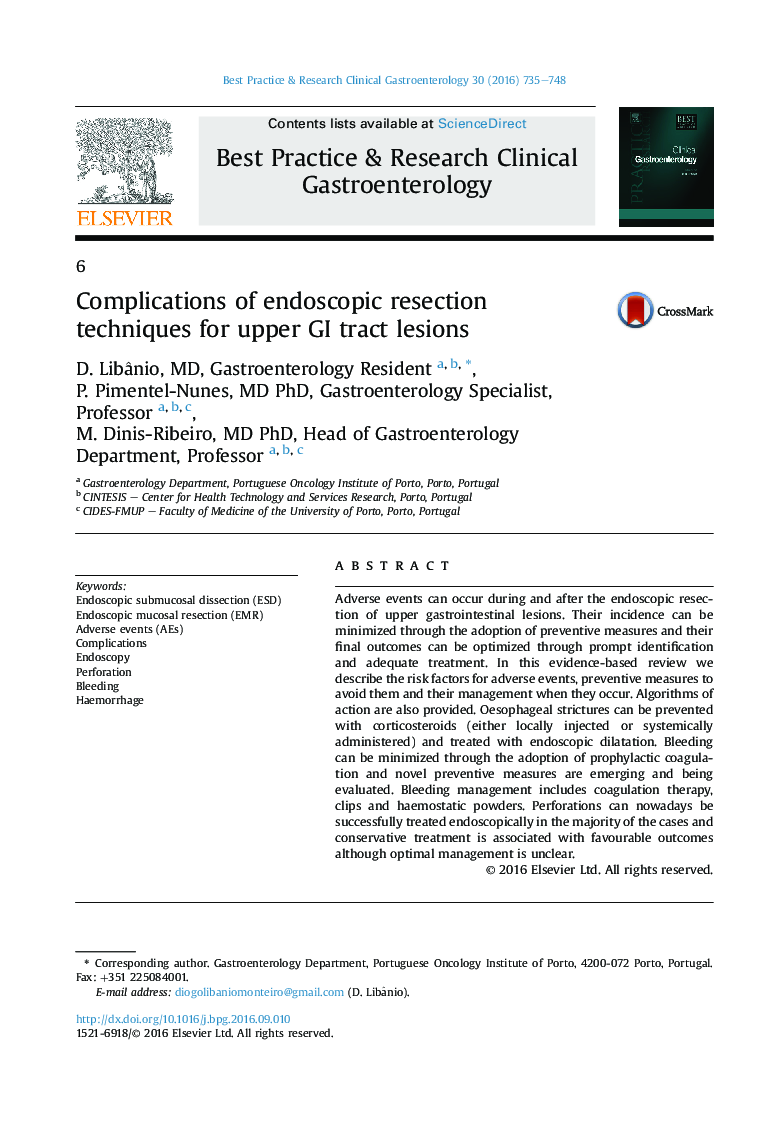| Article ID | Journal | Published Year | Pages | File Type |
|---|---|---|---|---|
| 5654528 | Best Practice & Research Clinical Gastroenterology | 2016 | 14 Pages |
Adverse events can occur during and after the endoscopic resection of upper gastrointestinal lesions. Their incidence can be minimized through the adoption of preventive measures and their final outcomes can be optimized through prompt identification and adequate treatment. In this evidence-based review we describe the risk factors for adverse events, preventive measures to avoid them and their management when they occur. Algorithms of action are also provided. Oesophageal strictures can be prevented with corticosteroids (either locally injected or systemically administered) and treated with endoscopic dilatation. Bleeding can be minimized through the adoption of prophylactic coagulation and novel preventive measures are emerging and being evaluated. Bleeding management includes coagulation therapy, clips and haemostatic powders. Perforations can nowadays be successfully treated endoscopically in the majority of the cases and conservative treatment is associated with favourable outcomes although optimal management is unclear.
